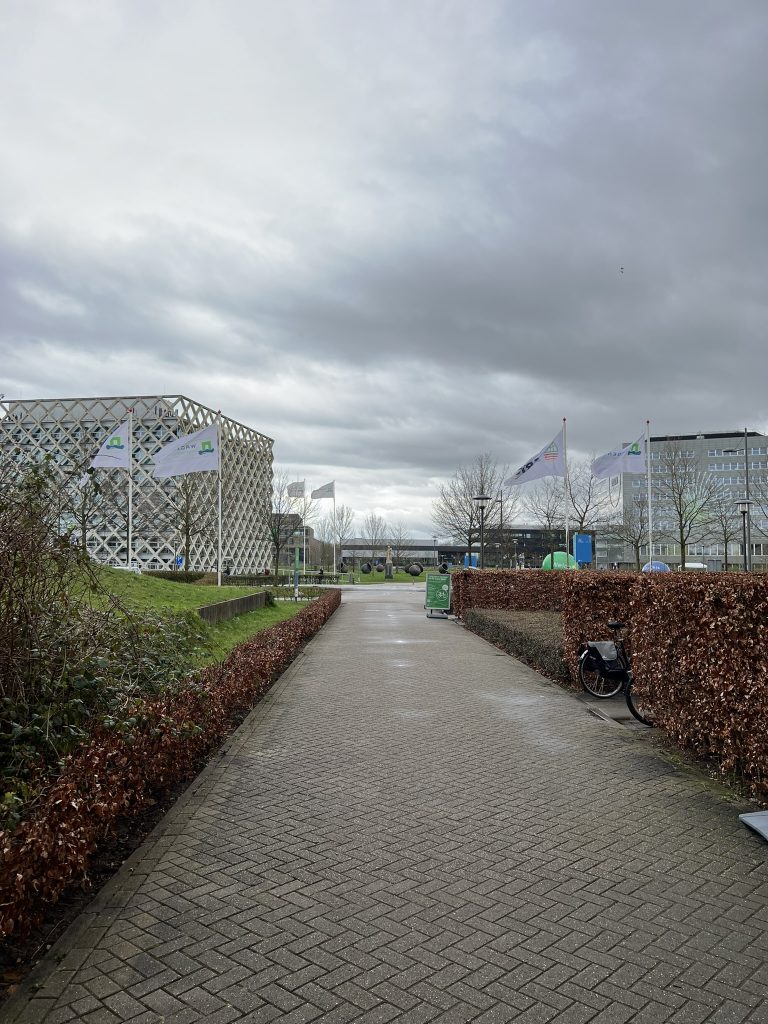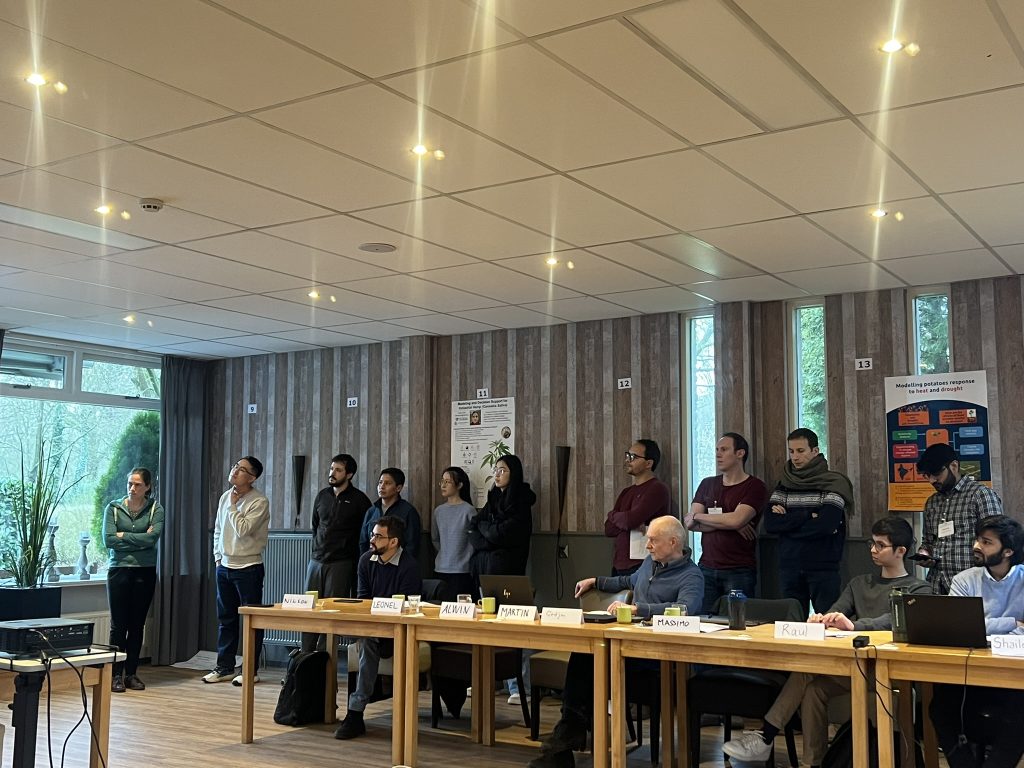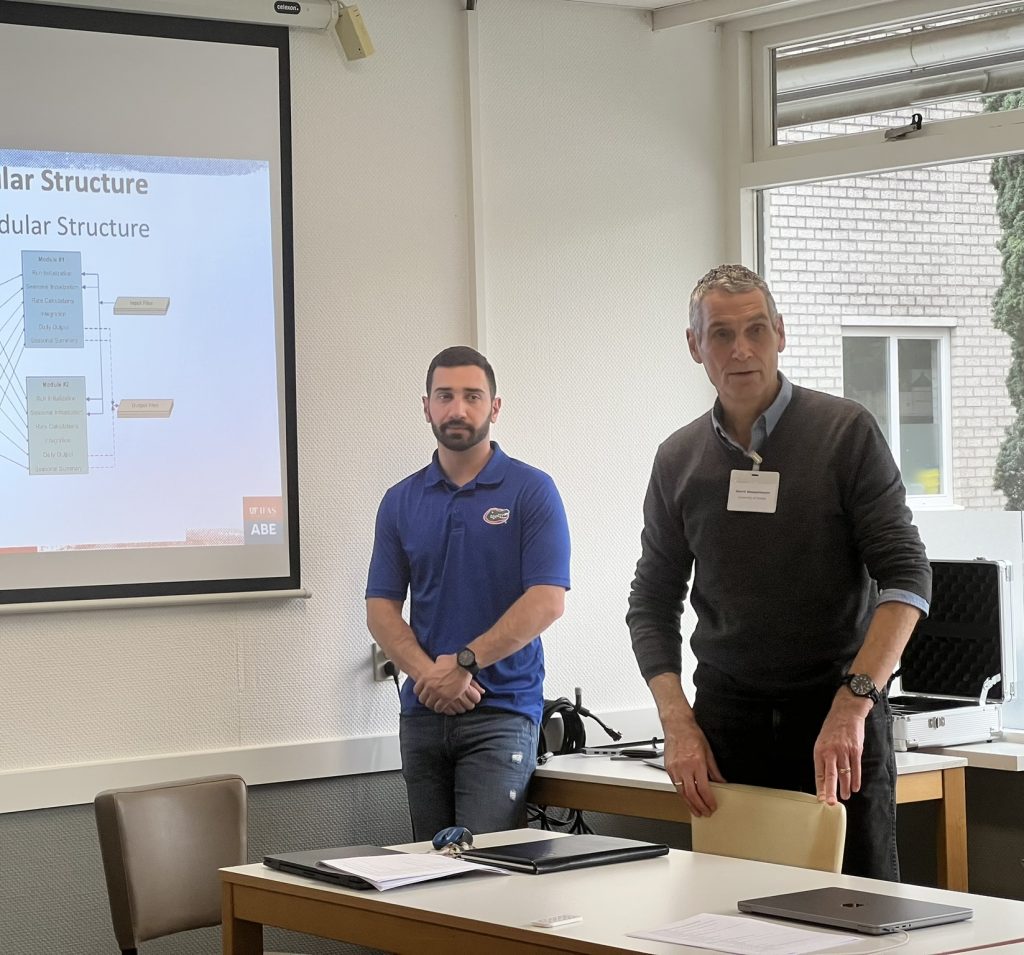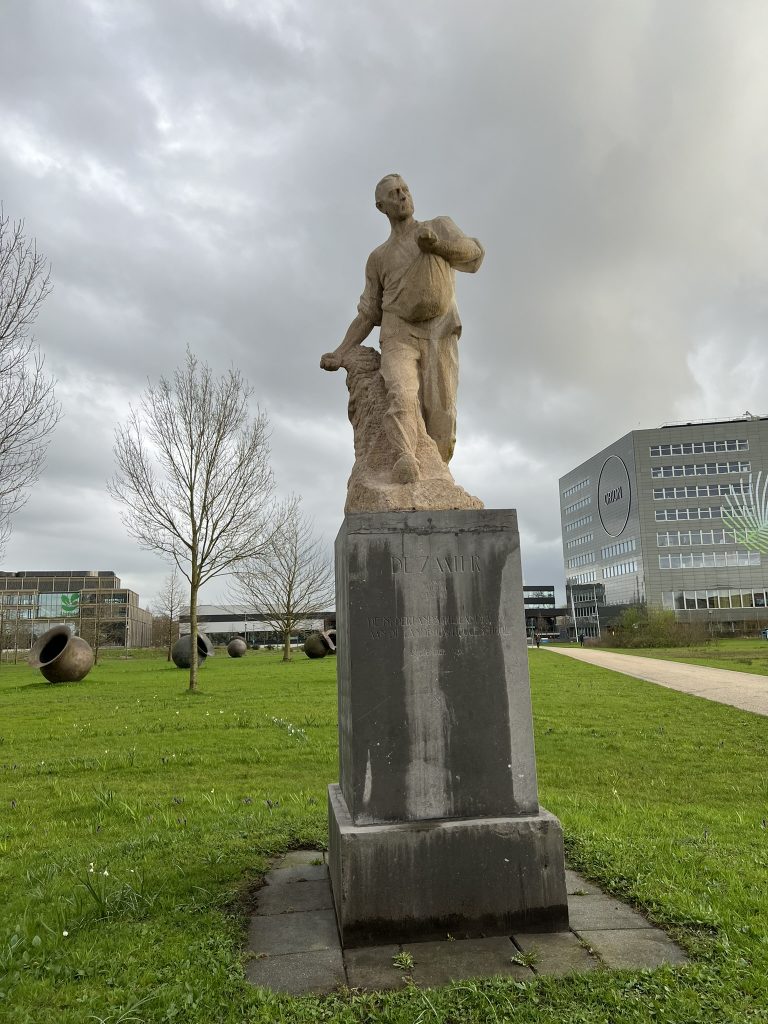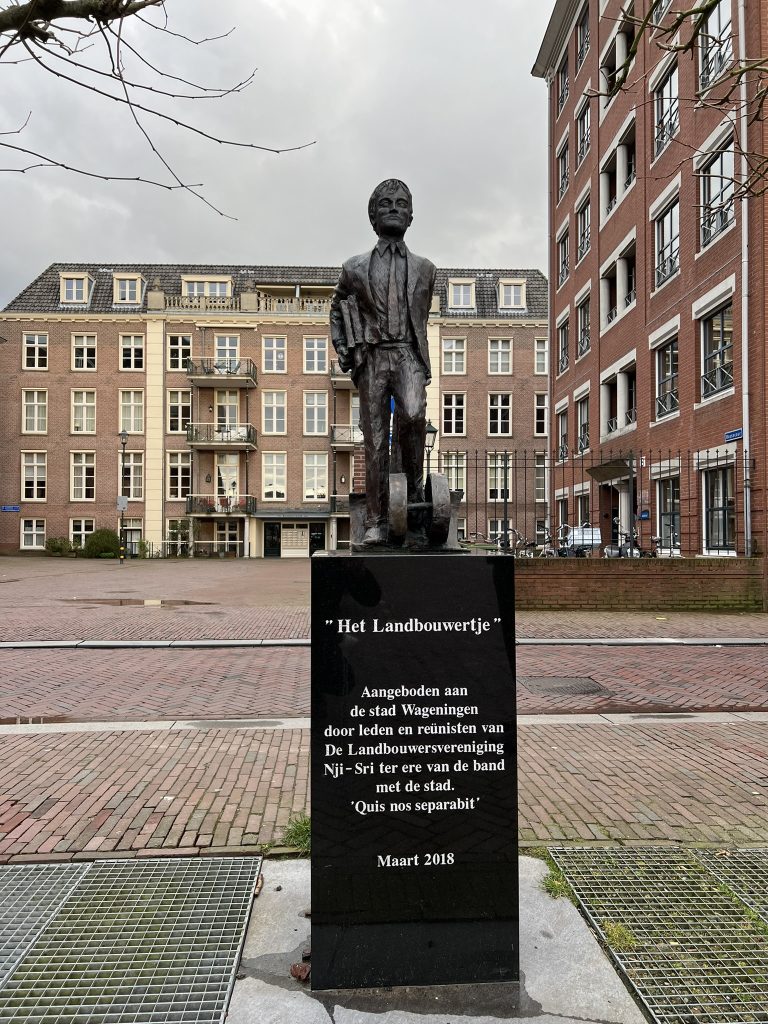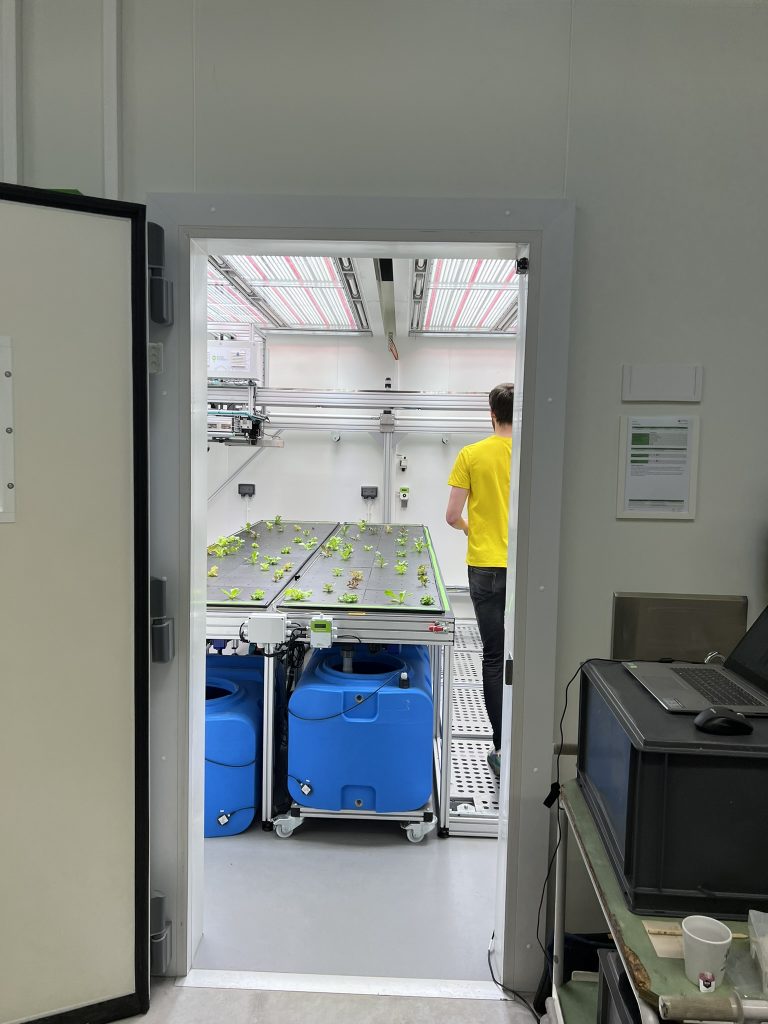Training the Next Generation of Crop Modelers for Crop Model Development and Improvement
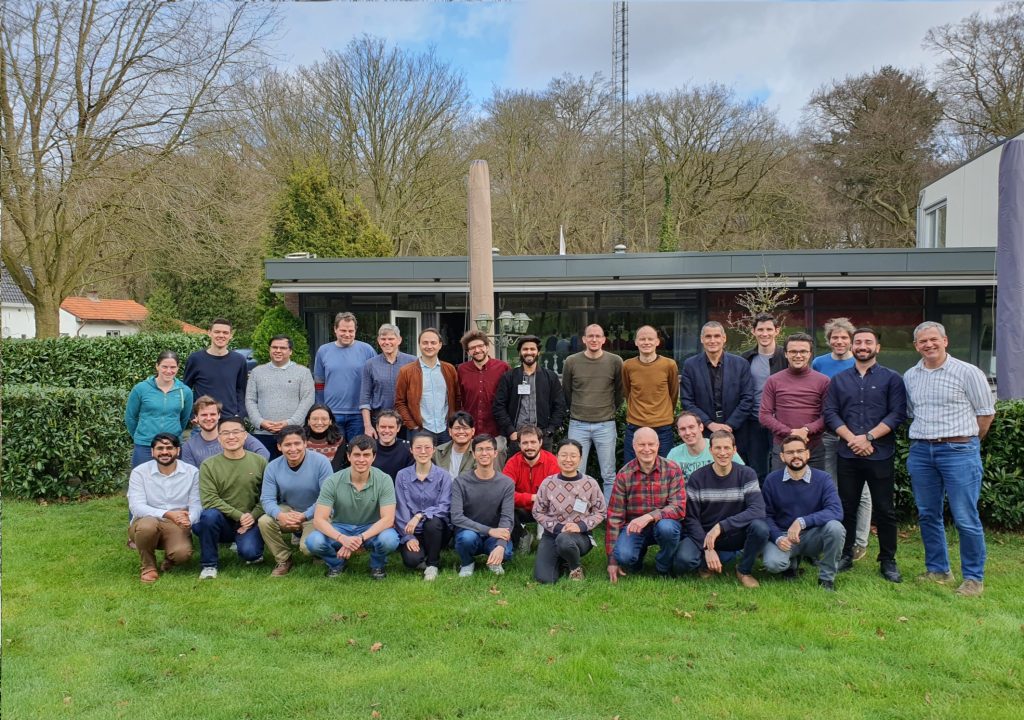
A Postgraduate Course entitled “Crop Modeling and Climate Change Course – Training the Next Generation of Crop Modelers for Crop Model Development and Improvement” was organized by The Graduate School for Production Ecology & Resource Conservation and the University of Florida during the week of March 10-15, 2024 at Parkhotel ‘de Bosrand’, Ede, the Netherlands. This Postgraduate Course was attended by 27 Ph.D. students, Postdoctoral Research Associates, and staff from Wageningen University (WUR), the Netherlands, and the University of Florida (UF), USA. Instructors included Martin van Ittersum, Tom Schut, and Paul Ravensbergen from WUR and Willingthon Pavan and Gerrit Hoogenboom from UF. The course was coordinated by Claudius vande Vijver with assistance provided by Miriam van Heist.
Participants learned about the detailed processes that play a role in crop development and growth and the interaction of crops with soil water and nutrients and evaluated the impact of processes in crop models in general. The main emphasis was working with the actual computer code of the the Cropping System Model (CSM) of Decision Support System for Agrotechnology Transfer (DSSAT) and the WOFOST (World Food Studies) model in relation to climate change. The main focus of this course was on the use and accuracy of sole crop simulation models, limitations of current dynamic crop growth models and challenges that remain. Participants were challenged to analyze how existing models can be adapted, calibrated, and evaluated in a modern dynamic simulation environment.
In the age of artificial intelligence models, mechanistic crop growth models are more important than ever. Plant and crop growth simulation models are now a basic tool for many researchers. Yet, there is a shortage of model developers, scientists with knowledge about underlying mechanistic processes and skills to transform this knowledge into scientific equations and create models. Such modelling skills are highly demanded in the labor market. Many of the more commonly used mechanistic crop models have a challenge to cope with climate change factors such as increased CO2, droughts and floods, temperature, variability, extreme events, and especially the interaction among these factors. There is, therefore, an urgent need to train the next generation of scientists on further development and improvement of dynamic crop simulation models.
